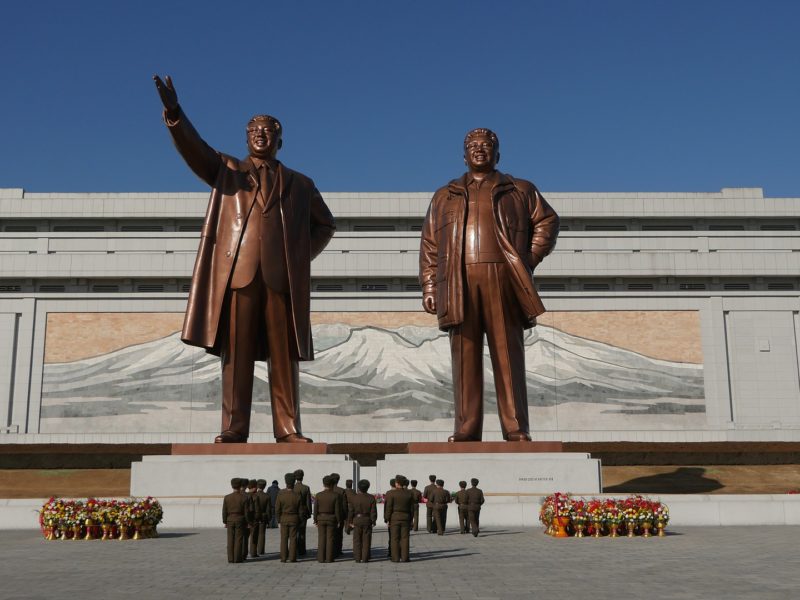Guest post by Francesco Bailo and Benjamin E. Goldsmith
The Biden administration’s newly disclosed policy towards North Korea signals a return to a measured US approach to relations with the highly authoritarian regime. The key issue at stake, of course, is the country’s nuclear weapons program. After the Trump administration’s pursuit of a grand bargain—or nothing, and the Obama administration’s “strategic patience,” which turned a cold shoulder to the Democratic People’s Republic of Korea (DPRK) in a waiting game, the current “practical” and graduated approach might signal de facto US acceptance of North Korea’s nuclear capability.
While full denuclearization remains the declared US goal, the acceptance of medium-term, pragmatic goals as the immediate object of US diplomacy suggests that the US now aims to limit—rather than eliminate—North Korea’s capabilities, in ways that best suit medium-term US security interests. In other words, while strategic patience has been described as “nothing for nothing,” and the Trump approach as “everything for everything,” the Biden “calibrated” approach might be characterized as “something for something.” North Korea can get something substantial, such as relaxed sanctions, for making substantial moves itself, short of denuclearization. The process might then easily stall, which is why the new policy amounts to de facto acceptance of the North’s nuclear status.
But how dangerous is it to live with a nuclear DPRK? Our new research provides fresh evidence about a key aspect of this question, suggesting that, contrary to conventional wisdom, the country is no more belligerent because of its nuclear capabilities. A widely accepted theory about nuclear weapons, called the stability-instability paradox, holds that rival countries experience greater conventional conflict, short of all-out war, when both possess nuclear weapons. This is because nuclear weapons can embolden a weaker power to challenge a stronger one in ways it would not otherwise do absent nuclear weapons. According to this theory, then, conflict with a denuclearized North Korea would be much less likely.
But would a denuclearized North Korea actually change its behavior towards the US or its ally South Korea? Answering this question is challenging both because of the absence of relevant comparison cases, and the tendency of researchers to exclusively study nuclear dyads—that is, pairs of nuclear-armed countries already in conflict, most commonly India-Pakistan.
Our research, which uses a quantitative technique called synthetic control method, simulates valid comparisons using large-scale conflict datasets and the computational abilities of modern computers. This allows us to compare our simulation for conflict between a non-nuclear North Korea and the US, with the real-world data for the two countries, post-nuclearization. We did the same for India-Pakistan and China-India.
We conclude that empirical support for the stability-instability paradox is at best weak. The models predict no difference in conflict levels based on the possession of nuclear weapons by both states for North Korea-US or China-India. In other words, our research provides no support for the argument that nuclear North Korea is any more provocative or belligerent towards the US than a non-nuclear North Korea would be.
North Korea acquired nuclear weapons by 2006. Since then, there has been one major case of violence: namely, the sinking of the South Korean naval ship Cheonan in 2010, which killed 46 crew. Contrast that with documented conflict before North Korea went nuclear: “the 1968 seizure of a US intelligence ship, downing of a US Air Force plane in 1969 killing 31, killing of two US troops in the demilitarized zone in 1976, exploding a South Korean civilian airliner in 1987 killing 115, a 2002 deadly North-South naval clash.” We can simply find no evidence to support expectations of increased North Korean belligerence based on its possession of nuclear weapons.
While our analysis does not answer all possible concerns about US security in a world in which a nuclear North Korea is an accepted part of the status quo, it strongly suggests that the rogue state does not exhibit “emboldened” behavior in conventional conflict due to its nuclear status. Given the difficulty—some would say implausibility—of actual denuclearization of the DPRK, this is a significant piece of evidence that is consistent with the proposed US approach focused on medium-term diplomatic agreements. It suggests denuclearization is not the only goal worth pursuing.
Francesco Bailo is a Lecturer in Digital and Social Media at the University of Technology Sydney and Benjamin E. Goldsmith is a Professor of Political Science at the Australian National University.






